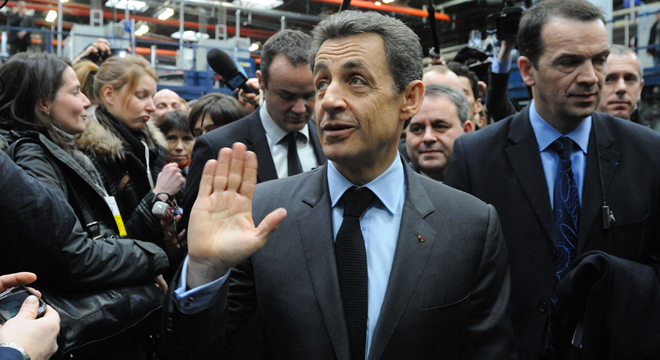France is calling for stronger UN action against Syria as President Nicolas Sarkozy completes a policy shift on the Arab Spring that began over a year ago.
French officials say that after a May 5th deadline they will call for a Chapter 7 Resolution at the UN Security Council. The resolution would open the door for additional moves to punish the Syrian government, including the possibility of military action. The resolution is not expected to pass as both China and Russia have expressed steady opposition towards international action aimed at the Syrian government.
France’s tough line comes as a consensus is forming that an internationally brokered ceasefire is failing on the ground. Since a peace plan negotiated by former UN Secretary General Kofi Annan was supposed to go into effect in late March, violence has continued unimpeded in Syria. UN Security General Ban Ki Moon has expressed strong disappointment with the situation, saying that the authorities in Damascus are “in contravention” of their obligations under the ceasefire agreement.
France has emerged as a vocal advocate for humanitarian intervention in the Middle East and North Africa over the past year. Analysts note that President Sarkozy has used the unfolding events of the region to strengthen France’s role on the world stage and play the role of a strong supporter of democracy and human rights. This was not the role Sarkozy played at the outset of the Arab Spring.
In late 2010, Foreign Minister Michelle Alliot-Marie offered support to Tunisian dictator Zine al-Abidine Ben Ali as he attempted to use the military to shutdown a popular uprising against his rule. This was in keeping with the Sarkozy government’s cozy relationship with several regional leaders with poor human rights records. However, after a sharp backlash Alliot-Marie lost her job and Sarkozy dramatically changed course.
In Libya he advocated NATO air strikes against his former close ally Muammar Qaddafi. After the fall of the Qaddafi regime, the French leader was one of the first heads of state to visit the capital Tripoli. France has continued this trajectory in Syria, taking a hard line against President Assad’s crackdown.
Sarkozy has repeatedly called out the Syrian government’s actions, saying that he would stand with dissidents and civilians under attack. In a February 2012 press conference alongside UK Prime Minister David Cameron, Sarkozy pledged humanitarian assistance and condemned human rights violations on the ground. He stepped away from calling for intervention saying, “The revolution cannot come from outside, it must be born from within.”
More recently, Sarkozy seems to be more open to military action. In an interview with Europe Radio 1, he compared the relentless shelling of Homs with the Qaddafi government’s assault on Benghazi. “”Bashar al-Assad is lying in a shameful way, he wants to wipe Homs from the map like Qaddafi wanted to wipe Benghazi from the map.” He went on to argue for the creation of “humanitarian corridors” around Syria “so an opposition can exist.”
Critics of Sarkozy have expressed skepticism about his commitment to human rights and argue that his driving interest is still rooted in his quest for global prestige as he fights for his political survival back home. Whatever the motives, France has certainly left its mark in Libya and may play a defining role in the Syria crisis over the coming weeks.









